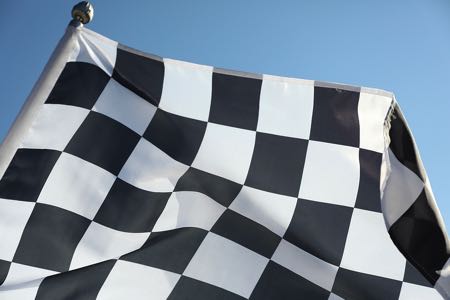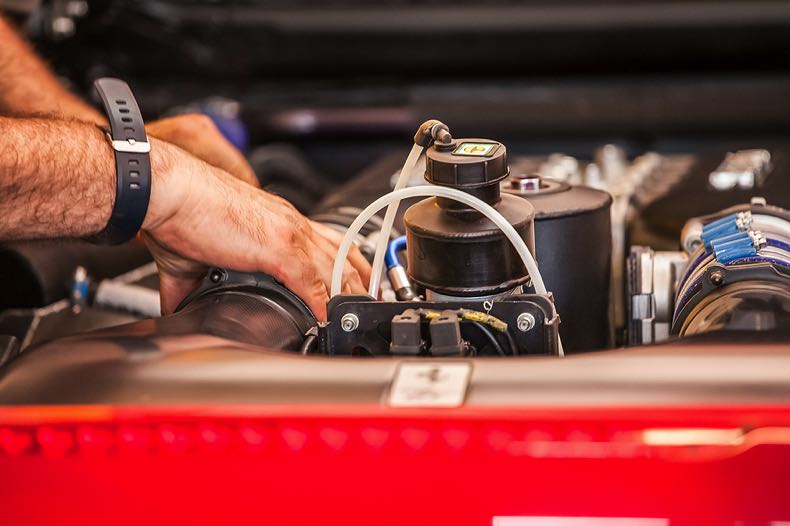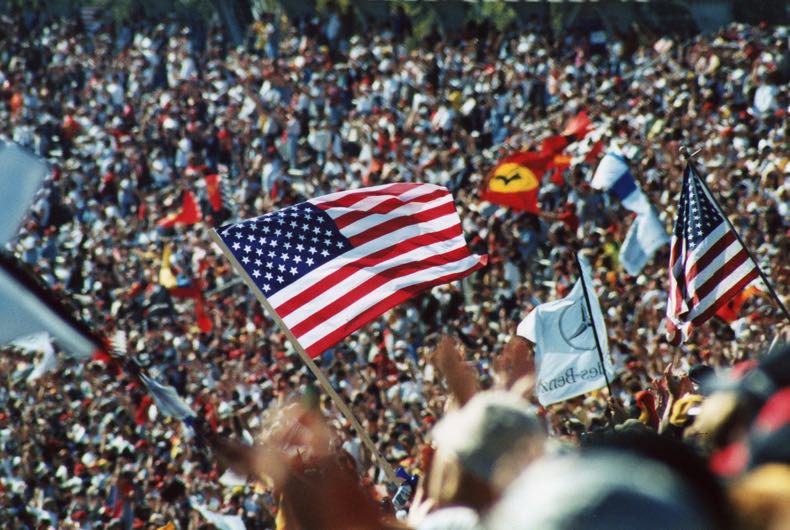 You probably already know the easy answer to this, which is no! Rarely do all cars finish in a Formula 1 race. There are so many reasons for a car not to finish that it remains highly unlikely that we will see all competitors see out the race week on week.
You probably already know the easy answer to this, which is no! Rarely do all cars finish in a Formula 1 race. There are so many reasons for a car not to finish that it remains highly unlikely that we will see all competitors see out the race week on week.
In this article, we take a look at why not all cars are able to finish a car, including mechanical issues, crashes, etc., as well as highlighting the very few races where all the cars did manage to finish somehow. We also look at the typical numbers of starters and finishers in an F1 season to get a picture of approximately how many cars do not finish in a typical race.
Reasons Cars May Not Finish

There are so many intricate and individual circumstances which may lead at an F1 car not being able to finish a race. For ease, we have split them into three main categories:
Mechanical/Electrical Issues
Formula 1 cars are notoriously fragile. This will always make them vulnerable when competing and going all out. Electrical and mechanical problems exist and probably always will. Not only is a mechanical failure not the fault of the driver, but it may not even be the fault of the team. Outside influences including dirty air can play a part, leading to a ‘DNF’, or Did Not Finish, next to the driver’s name.
Crashes
Though we all know it is morally execrable, some drivers have been known to crash out or make others crash out on purpose. Naughty team tactics, certainly in the days before we could all hear the team instructions on our TVs, sometimes allowed for drivers to ensure another did not finish the race.
We have written on these pages before about famous Nelson Piquet Jr incident in 2008. Having driven deliberately into a barrier, the safety car was produced after Piquet’s crash, which allowed struggling teammate, Fernando Alonso, to ultimately win the race after the competitors were forced to bunch up and slow down.
Damage to Cars
Cars will always be colliding in F1. Damage occurs regularly on the track, due not just to collisions but also by cars picking up debris.
Famous F1 Full Houses

There have only been a handful of occasions in Formula 1 history when all cars have managed to finish the race. Here are some of the most famous ones:
- Dutch Grand Prix (1961): 15 drivers began the Grand Prix at Zandvoort in 1961. Back then, extraordinarily, not only did every driver see the entire race out, but they did it without stopping too.
- United States Grand Prix (2005): Only 6 started, meaning it is not a great surprise that they all finished. The reason this race is so famous, however, is that after a bad crash in practice, Michelin advised all drivers using their tyres not to compete. 20 were due to race, but only 6 started and finished.
- Italian Grand Prix (2005): There was a second full house in 2005 in Italy. Yes, there was drama, but ultimately, all 20 drivers got home in one piece, headed by Juan Pablo Montoya.
- European Grand Prix (2011): A particularly important race on this list, Valencia’s street circuit managed to encourage all 24 starters to complete. This race wasn’t the first F1 full house, but was the one with the most finishers.
The Japanese, Chinese and Hungarian Grands Prix have since made the full house list, but getting all starting cars to finish an F1 race remains rare as the stats in a typical season will bear out.
Finishers in an F1 Season
To show how many cars finish in a typical year, we have used the 2022 F1 World Championship season as a guide.
| Grand Prix | Winning Driver | Starters | Finishers |
|---|---|---|---|
| Bahrain | Charles Leclerc | 20 | 17 |
| Saudi Arabian | Max Verstappen | 20 | 14 |
| Australian | Charles Leclerc | 20 | 17 |
| Emilia Romagna | Max Verstappen | 20 | 18 |
| Miami | Max Verstappen | 20 | 17 |
| Spanish | Max Verstappen | 20 | 18 |
| Monaco | Sergio Perez | 20 | 17 |
| Azerbaijan | Max Verstappen | 20 | 16 |
| Canadian | Max Verstappen | 20 | 17 |
| British | Carlos Sainz Jr | 20 | 14 |
| Austrian | Charles Leclerc | 20 | 17 |
| French | Max Verstappen | 20 | 16 |
| Hungarian | Max Verstappen | 20 | 20 |
| Belgian | Max Verstappen | 20 | 18 |
| Dutch | Max Verstappen | 20 | 18 |
| Italian | Max Verstappen | 20 | 16 |
| Singapore | Sergio Perez | 20 | 14 |
| Japanese | Max Verstappen | 20 | 18 |
| United States | Max Verstappen | 20 | 17 |
| Mexico City | Max Verstappen | 20 | 19 |
| Sao Paulo | George Russell | 20 | 17 |
| Abu Dhabi | Max Verstappen | 20 | 19 |
Overall Starters & Finishers in the 2022 Season
- Starters: 440
- Finishers: 374
- DNF: 66 (15%)
- DNF Per Race: 3
As we can see, the cars in recent years have become very reliable. The Hungarian Grand Prix in 2022 saw a full field of 20 finish the race, while the lowest was 14 in Saudi Arabia, Great Britain and Singapore. The average number of finishers in 2022 was exactly 17 per race, meaning 15% of all cars taking part across the season did not finish. These are fairly standard figures for current F1 cars though as technology changes, so may the numbers.
